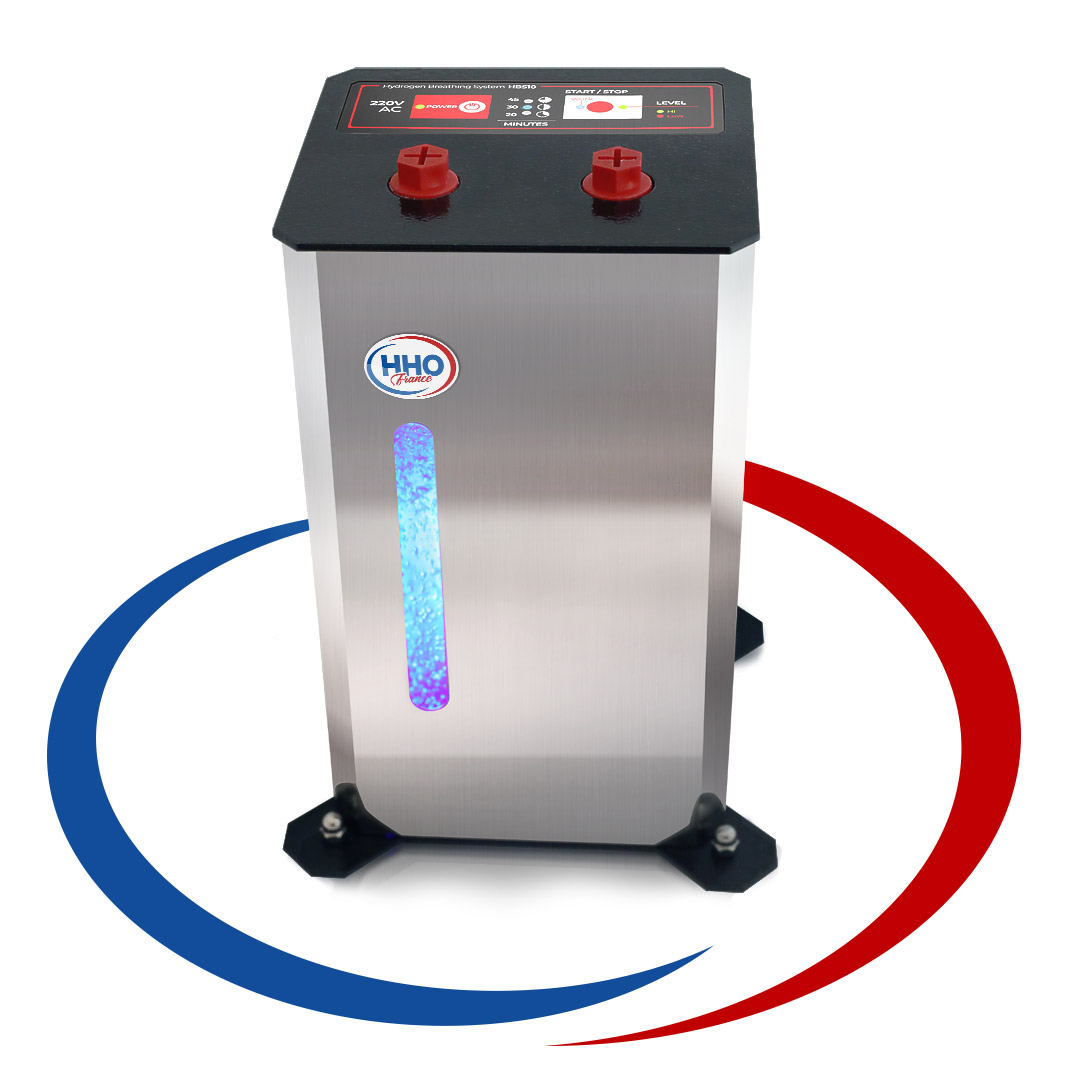Hydrogen Therapy in Treatment
of Diabetes
Author: M.D. Victoria Kaludova
Hydrogen Therapy has been proven to support the Treatment of Diabetes
In recent years, numerous scientific reports have been published about the remarkable effect of molecular hydrogen inhalation in patients with Type 2 Diabetes Mellitus. The results achieved in a number of studies indicate that the inhalation of hydrogen (H2) represents a new effective strategy for treating diabetes and improving the condition of those suffering from the disease.
With the progressive popularization of Hydrogen Therapy the anti-diabetic effect of hydrogen is becoming increasingly recognized. Hydrogen inhalation as a therapeutic strategy has been widely accepted for years by the public in advanced Asian countries such as Japan and China, and has recently attracted increasing attention in the rest of the world.

A clinical study on the benefits of Hydrogen Therapy in the Treatment of Diabetes
conducted in 1603 patients with Type 2 diabetes who maintained conventional hypoglycemic treatment for at least 6 months, divided into 2 groups
*Glucose levels, as measured by fasting FPG (“Fasting Plasma Glucose”), decreased almost twice as much in patients undergoing hydrogen inhalation.
As a result of the additional hydrogen treatment, FPG dropped by -22.7 mg/dL, compared to only a -11.7 mg/dL drop achieved in the control group.
In addition, Hydrogen Therapy patients also experience:
- Over 2 times greater improvement in Glycated Hemoglobin (HbA1c) levels;
- Almost 3 times greater improvement in Total Cholesterol (TC) levels;
- Even more significant improvements in the Homeostasis Models (HOMA-β and HOMA-IR).
Hydrogen leads to 2 times better values of glycated hemoglobin and plasma glucose (blood sugar)
In the aforementioned clinical study, 1,603 persons over 18 years of age were examined. with type 2 diabetes who have maintained conventional hypoglycemic treatment for at least 6 months. The patients were divided into 2 groups – one group was additionally subjected to hydrogen inhalations, and the other only to therapy with conventional hypoglycemic agents.
After 6 months of treatment, glycated hemoglobin (HbA1c) levels as well as fasting plasma glucose (FPG) levels decreased significantly more in the Hydrogen Therapy group.
The level of glycated hemoglobin decreased by 0.94% in the patients receiving additional hydrogen treatment. The reported improvement is over 2 times – 0.48% greater than the result achieved in those treated only with conventional medications (-0.46%).
The improvement in fasting glucose (blood sugar) values was also nearly 2-fold greater in favor of inhaled hydrogen (-22.7 mg/dL vs. -11.7 mg/dL).
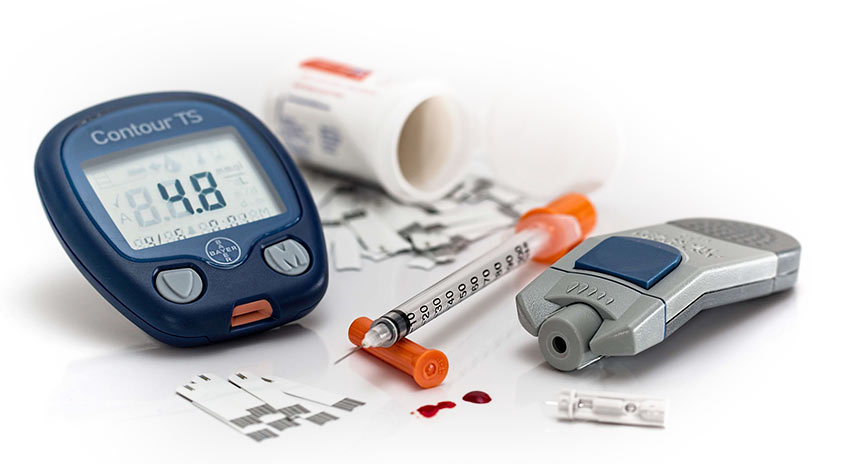
Hydrogen inhalations significantly improve cholesterol levels

Since diabetes leads to metabolic syndrome, the study also tracked cholesterol levels, the most important of which is LDL (“Low-Density Lipoprotein” / “Low-Density Cholesterol”), because it is this that is deposited in the blood vessels and leads to to a number of health problems.
When using Hydrogen Therapy, both a reduction in the level of LDL (the so-called “Bad Cholesterol”) and a significant improvement in the state of cholesterol as a whole TC (“Total Cholesterol” / “Total Cholesterol”) are observed.
In patients in the control group treated with conventional hypoglycemic agents alone, total cholesterol levels fell by 4.4 mg/dL. In comparison, the improvement in those additionally treated with hydrogen inhalation was approximately 3 times greater (-12.9 mg/dL vs. -4.4 mg/dL).

Hydrogen Therapy
at home
HBS10 is a device for hydrogen water and hydrogen breathing, with which everyone can easily apply hydrogen therapy at home. The device produces a minimum of 450 milliliters of hydrogen gas per minute. This covers the internationally accepted standards for hydrogen inhalation therapy.
Proudly made in EU
based on more than 10 years of experience in the production and development of hydrogen technologies
Chromatographically studied at Academy of Science
CE certified
Tested and Recommended by H2HUBB, USA

Why is Hydrogen Therapy so Effective in Treating Diabetes?
Neutralization of Free Radicals
Diabetes is one of the most prevalent chronic metabolic diseases with a global incidence of 9.3% in 2019. The current therapeutic strategy mainly involves lifestyle improvement and medication.
The development of metabolic disorders in diabetes is related to oxidative stress and inflammatory factors. Oxidative stress is defined as an imbalance between the production of free oxygen radicals (ROS) and the activity of the antioxidant defense system, which is widely associated with numerous diseases, including ischemia-reperfusion injury, inflammatory and neurological diseases.
Hydrogen (H2) is a newly developed strong antioxidant that can easily diffuse across the cytomembrane and selectively eliminate cytotoxic ROS.
Thus, the cooling or lowering of free radicals can be used as a potential antidiabetic agent.
It is the demonstrated antioxidant and anti-inflammatory properties that make Hydrogen Therapy so effective in the fight against Diabetes.

healthy cell
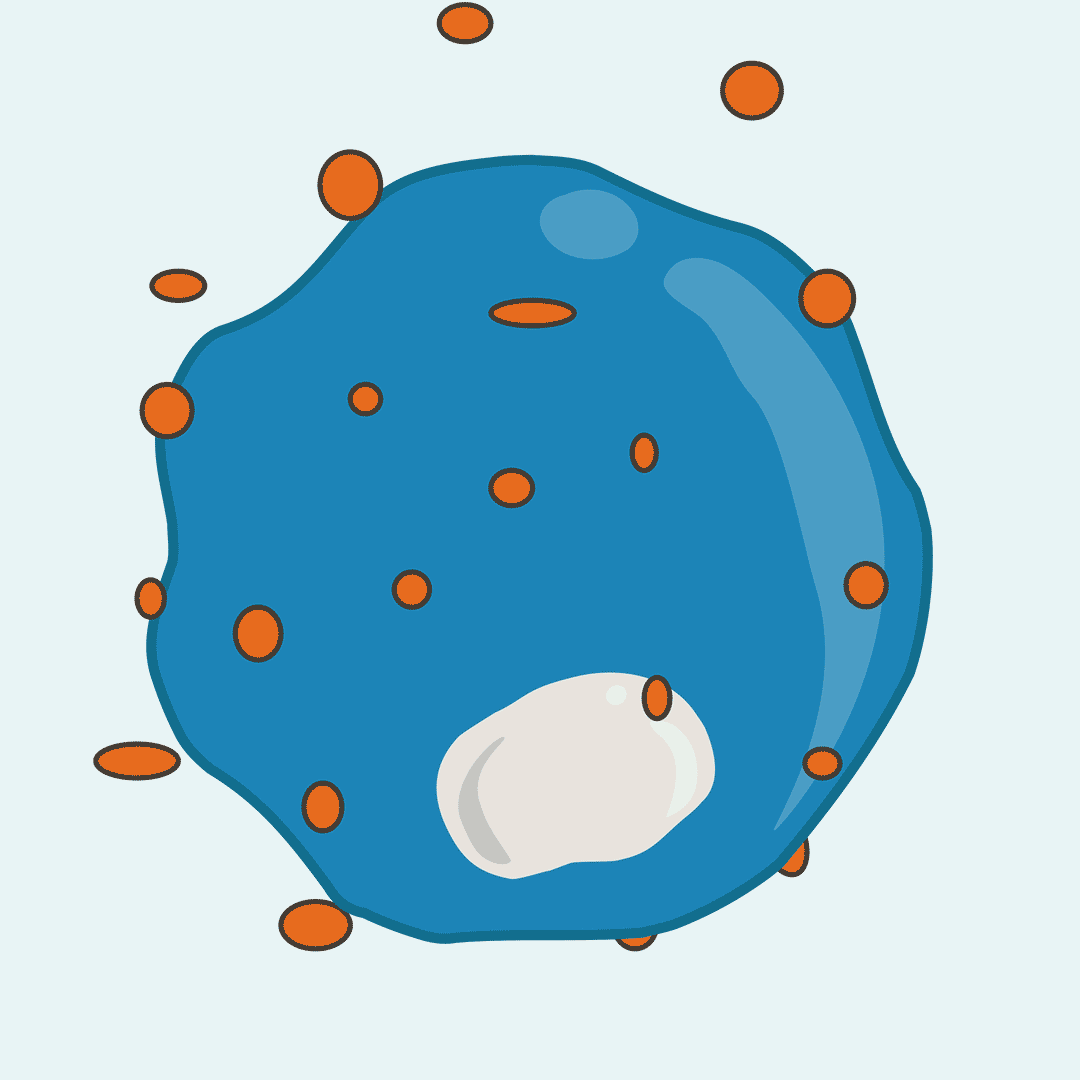
cell attacked
from free radicals

oxidative stress caused by
the free radicals
In addition, hydrogen gas restores insulin resistance and β-cell function in the pancreas. This is also proven by the study discussed above, as HOMA-β (homeostasis model of β-cell functions) and HOMA-IR (homeostasis model of insulin resistance) showed significantly greater improvement in the hydrogen inhalation group. Multiple previous clinical studies have also demonstrated a similar result.
Ectopic lipid deposition in liver tissue is an additional cause of insulin resistance. It is hydrogen that can suppress this process.
In addition to treating diabetes, molecular hydrogen has also been scientifically proven to have a number of preventive and therapeutic effects in many other disease models, including:
- ischemia-reperfusion injuries,
- neurodegeneration,
- cardiovascular diseases,
- metabolic syndrome,
- inflammation and oncological diseases.
Tolerance and safety
of hydrogen therapy
Compared to the control group, hydrogen therapy was associated with a lower incidence of several adverse reactions, including: hypoglycemia, vomiting, constipation, vertigo, and blacking out.
This indicates that molecular hydrogen treatment would result in fewer side effects. Hydrogen inhalation has also been shown to be a safe adjunctive therapy in previous studies.
Conclusion
Hydrogen Therapy, as an additional treatment, has been proven to improve glycemic control of patients with Type 2 Diabetes in real-world conditions, improving lipid profile and insulin resistance, increasing the probability of reaching the glycated hemoglobin target (HbA1< 7%) after 6 months of treatment .
In summary, the expert conclusion reached is that hydrogen inhalation represents a new, optional, but effective strategy to treat diabetes and improve patients’ conditions.
Hydrogen Therapy significantly improves levels of:
☑ Glycated Hemoglobin and Plasma Glucose (blood sugar);
☑ Total Cholesterol;
☑ The homeostatic HOMA-β and HOMA-IR models.
Other general benefits of
Hydrogen Therapy
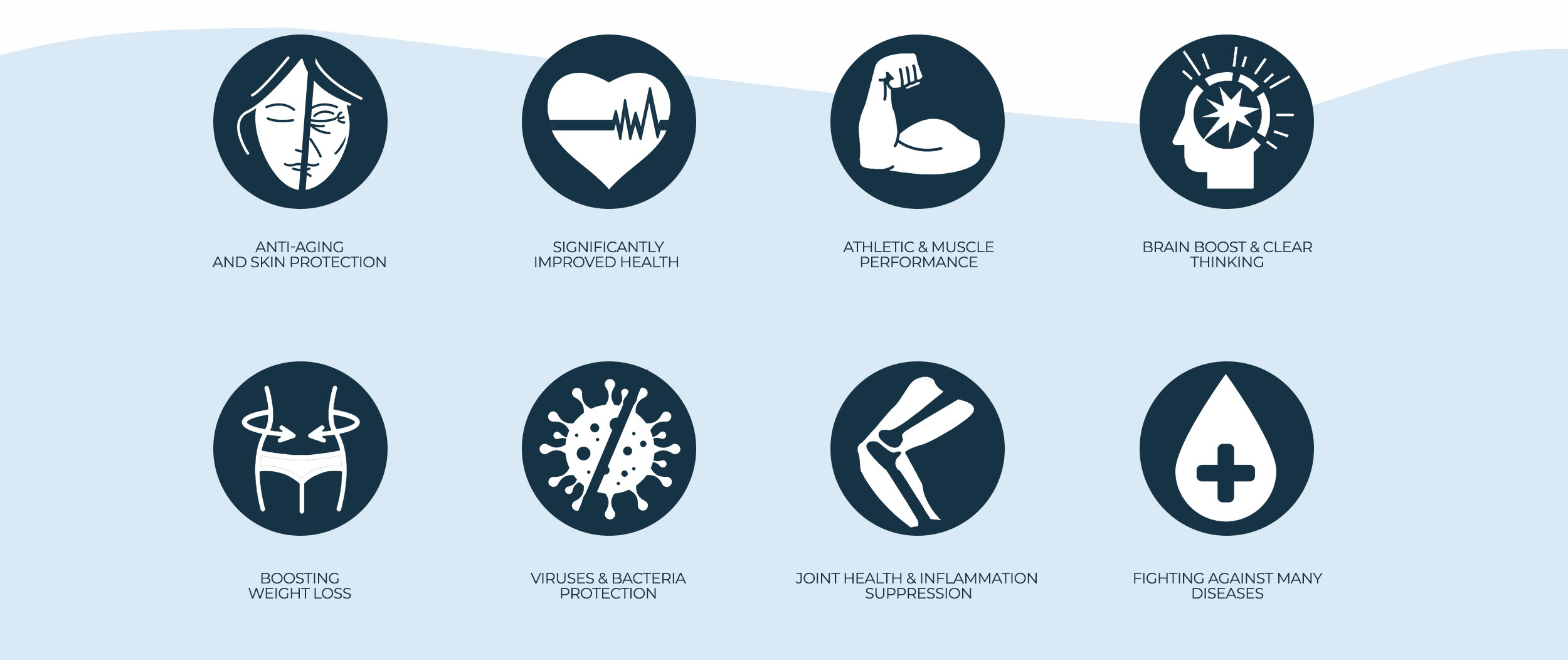
What is
Hydrogen Therapy?
In essence, “Hydrogen Therapy” is an additional regular intake of hydrogen by drinking hydrogen-enriched water and/or inhaling hydrogen-oxygen gas (also known as “Brown gas” or “HHO gas”).
The so-called “Hydrogen water” is structured water saturated with hydrogen, which has been proven to hydrate the body up to 6 times faster than all other types of water (mineral, spring, tap, etc.).
Drinking Hydrogen Water can help neutralize free radicals.
Even more effective is the direct inhalation of hydrogen, since in this way about 100 times more of it is taken.
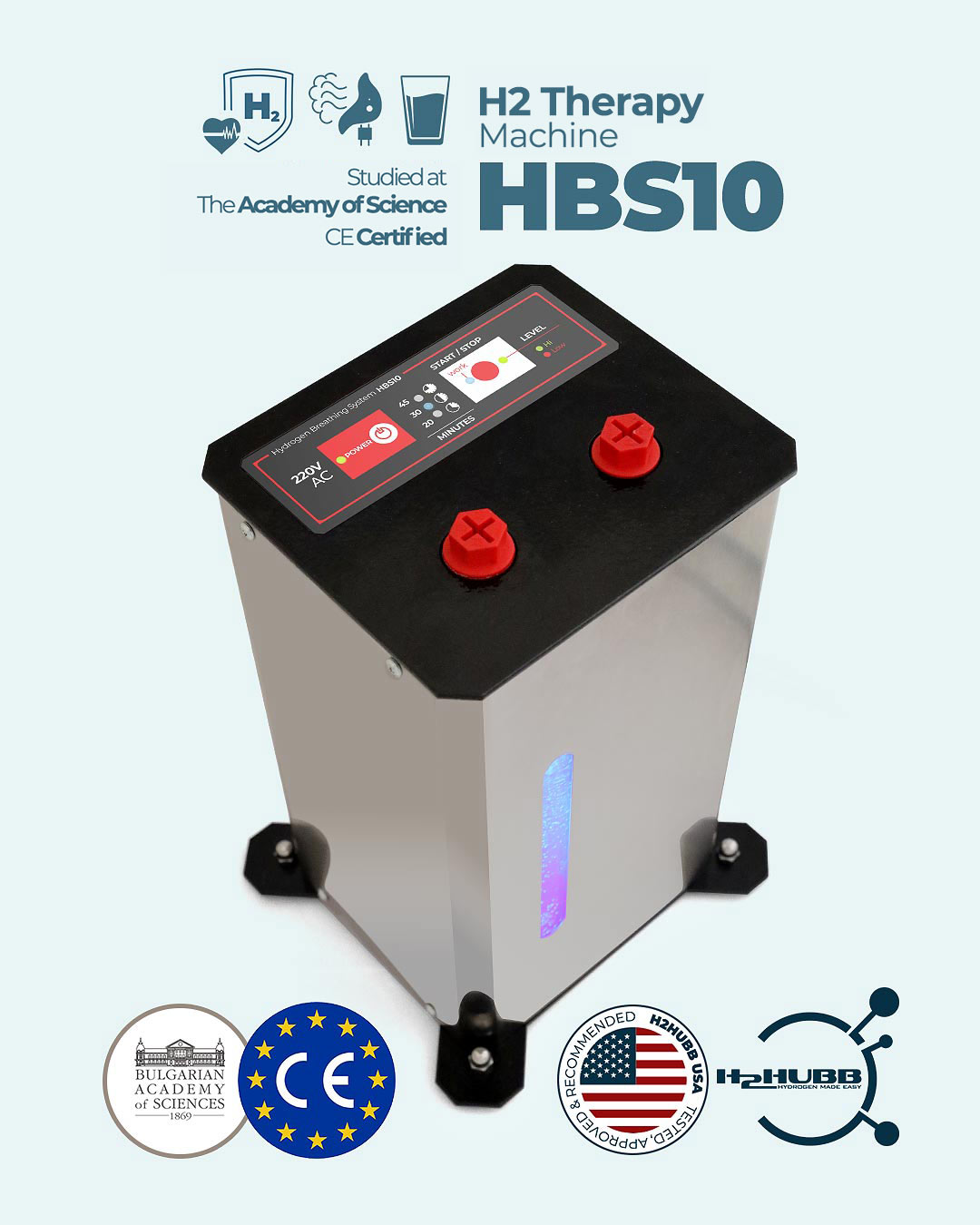
Our best-selling
Hydrogen Therapy Device
OF 2-in-1 TYPE
- for the production of Hydrogen Water,
- for Hydrogen Inhalation
Designed and manufactured in EU based on previous experience of over 10 years in the production of hydrogen equipment.
Each device complies with European Standards.
A conformity assessment procedure was carried out for the model.
Tested and Recommended by H2HUBB, USA.
Chromatographically studied at Academy of Science.
Marked with European initials for CE conformity.


